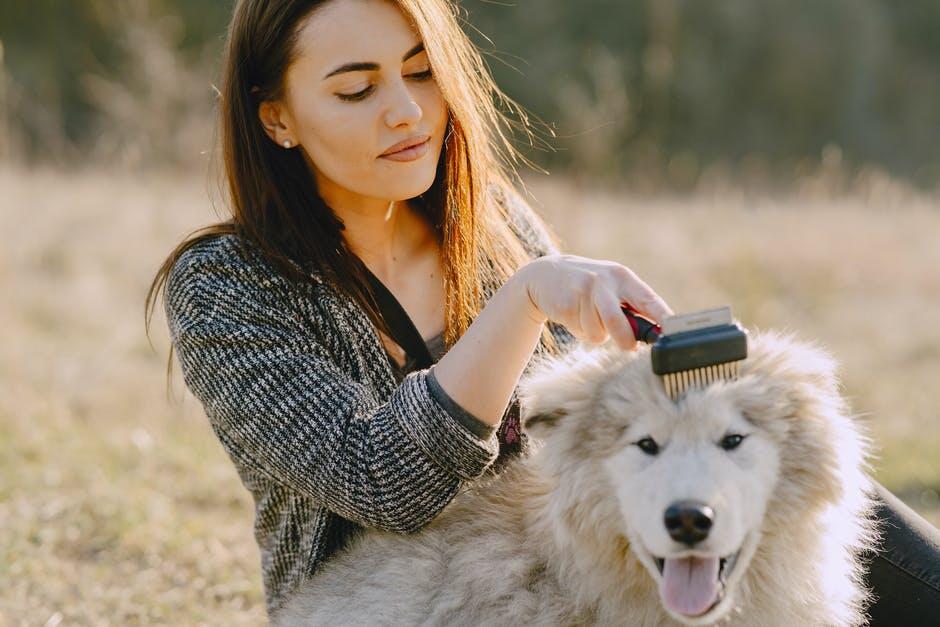Every responsible dog owner understands that a healthy skin and coat are vital signs of overall well-being in canines. A shiny, smooth coat not only reflects good health but also contributes to your dog’s comfort and happiness. However, many dogs encounter skin and coat issues caused by genetics, diet, or environmental factors. To address these concerns effectively, dog skin and coat supplements have become increasingly popular as a safe and natural solution.
This comprehensive guide aims to inform you about the benefits, ingredients, selection tips, and usage guidelines for dog skin and coat supplements. By the end, you’ll have a clear understanding of how these supplements can enhance your dog’s health and the best practices for choosing quality products.
Anatomy and Function of Dog Skin and Coat
Structure of a Dog’s Skin
Understanding the anatomy of a dog’s skin helps in recognizing how supplements can improve skin health. The skin consists of three main layers:
- Epidermis: The outermost layer that acts as a barrier and provides pigmentation.
- Dermis: Contains blood vessels, nerves, hair follicles, and sweat glands, supporting nourishment and sensation.
- Subcutaneous tissue: Fatty tissue that insulates and cushions the body.
The Role of a Dog’s Coat
The coat offers protection from environmental elements such as UV rays, cold, and physical injuries. It also aids in communication and emotional expression. A healthy coat indicates optimal hydration, nutrition, and immune function, which deficiency or allergies can compromise.
Factors Influencing Skin and Coat Health
Several factors can impact a dog’s skin and coat quality, including:
- Genetics
- Diet and nutritional intake
- Environmental conditions (humidity, pollution)
- Age and breed-specific traits
- Underlying health issues or allergies
Common Skin and Coat Problems
Dry, Flaky Skin
Often caused by deficiencies in essential fatty acids or dehydration, dry skin can lead to flakiness and discomfort.
Itching and Scratching
Intense itching may stem from allergies, parasites, or skin infections, leading to hair loss and hotspots.
Hair Loss or Thinning Coat
Could result from hormonal imbalances, poor nutrition, or parasite infestations.
Dull, Lackluster Fur
A sign that your dog’s coat lacks the necessary nutrients to shine and remain healthy.
Allergies and Sensitivities
Food allergies or environmental sensitivities can manifest as itchy, inflamed skin.
Infections and Parasites
Bacterial, fungal infections, or external parasites like fleas may cause skin irritation and coat issues.
What Are Dog Skin and Coat Supplements?
Definition and Purpose
Dog skin and coat supplements are specially formulated nutritional products designed to *support* skin barrier integrity and promote a glossy, healthy coat. They work by delivering essential nutrients that may be lacking in your dog’s regular diet, thereby improving overall skin resilience and coat appearance.
How Supplements Complement Regular Diet
Even high-quality dog foods may not provide all the vital nutrients, especially if your dog has special dietary needs or allergies. Supplements bridge this gap, ensuring optimal levels of beneficial ingredients essential for skin and coat health.
Types of Dog Skin and Coat Supplements
Oils and Fatty Acids
Omega-3 and omega-6 fatty acids are popular for their ability to hydrate skin and enhance coat shine. Fish oil, salmon oil, and krill oil are common sources.
Vitamins
Vitamins like biotin and vitamin E support hair growth, strengthen strands, and offer antioxidant protection.
Minerals
Zinc is crucial for wound healing and regulation of oil production, helping prevent dry skin and bald spots.
Herbal Ingredients
Herbs such as chamomile or aloe vera may soothe irritated skin, while natural oils promote overall coat health. Some supplements blend herbal extracts for added benefits.
Combination Formulas
Many products combine multiple ingredients, offering a comprehensive approach to skin and coat wellness.
Key Ingredients to Look for in a Dog Skin and Coat Supplement
Omega-3 Fatty Acids
Benefits: Omega-3s hydrate the skin, reduce inflammation, and boost coat sheen. They also support joint health and immune function. Sources: Fish oil, salmon oil, krill oil.
Biotin (Vitamin B7)
Role: Essential for keratin production, biotin strengthens hair and nails, combating dull, brittle coats.
Vitamin E
Function: Acts as a powerful antioxidant, supporting skin repair, and enhancing immune defenses.
Zinc
Importance: Regulates oil glands, promotes healing, and prevents dry patches or scalp issues.
Other Beneficial Ingredients
- Omega-6 fatty acids for balanced skin oils
- Herbal extracts like aloe vera for soothing irritated skin
Benefits of Using Dog Skin and Coat Supplements
Enhanced Coat Shine and Softness
Supplements rich in omega fatty acids and biotin help achieve a silky, lustrous coat that’s a joy to pet and show off.
Reduced Itching, Dryness, and Flakiness
Nourishing ingredients strengthen the skin’s barrier, decreasing discomfort and flaky patches.
Strengthened Skin Barrier Against Irritants
A resilient skin barrier prevents allergens and parasites from penetrating, reducing incidences of infections.
Decreased Shedding
Proper nutrition reduces excessive shedding, making grooming easier and your home cleaner.
Improved Overall Health and Well-being
Healthy skin and coat correlate with better immune function, energy, and vitality.
How to Pick the Right Dog Skin and Coat Supplement
Factors to Consider
- Dog’s Age, Breed, & Size: Larger breeds or senior dogs may require different dosages.
- Specific Skin or Coat Issues: Dull coat, dry skin, or allergies dictate targeted ingredients.
- Ingredient Quality & Safety: Always choose supplements with proven purity and safety standards.
- Formulation: Chewables, liquids, capsules—select what’s easiest for your pet.
- Veterinary Consultation: Always discuss with your vet before starting any supplement regimen.
Reading Labels & Ingredients
- Check for artificial additives, fillers, or preservatives
- Follow dosage instructions carefully
- Look for certification seals or quality assurance marks
Usage Guidelines and Precautions
Correct Dosage
Follow manufacturer recommendations based on your dog’s weight and age to prevent overdose or insufficient benefits.
Expected Timeframe for Results
Noticeable improvements typically occur after 4-6 weeks of consistent use, but this varies per dog.
Possible Allergic Reactions
Monitor for signs such as itching, swelling, or gastrointestinal upset. Discontinue use and consult your vet if symptoms appear.
Interactions with Medications
Some ingredients may interact with medications. Always inform your vet about what your dog is taking.
Natural Alternatives and Dietary Tips
Incorporate Omega-Rich Foods
Adding foods like salmon, eggs, and flaxseed into your dog’s regular diet can naturally support skin and coat health.
Balanced Diet and Proper Hydration
Ensure your dog consumes a complete diet, rich in nutrients and sufficient water intake for optimal skin hydration.
Regular Grooming & Bathing
Brushing removes loose fur, stimulates oils, and keeps the coat shiny. Use gentle, natural shampoos designed for sensitive skin.
Managing Allergies
Identify allergens through testing and reduce environmental triggers. A diet free from common allergens like corn or soy can help.
Popular Dog Skin and Coat Supplements in the Market
| Brand | Key Ingredients | Formulation Type | Price Range | Vet Recommended | Customer Feedback |
|---|---|---|---|---|---|
| Nordic Naturals Omega-3 | Fish oil, Vitamin E | Liquid | $20–$40 | Yes | High |
| Zesty Paws Biotin & Omega Oil | Biotin, Omega fatty acids | Soft Chew | $15–$30 | Yes | Very Positive |
| Vet’s Best Hair, Skin & Coat | Biotin, Vitamin E, herbal extracts | Capsules | $25–$45 | Recommended | Positive |
Conclusion
Taking care of your dog’s skin and coat is an essential aspect of responsible pet ownership. Using a dog skin and coat supplement can significantly improve coat shine, reduce discomfort, and support overall health. Remember to select high-quality products with natural ingredients, adhere to recommended dosages, and consult your veterinarian before starting any new supplement regime. With attentive care and the right nutritional support, your furry companion will walk around with a radiant coat and happy, healthy skin.
FAQs
- How long does it take for a dog to see results from supplements? Usually 4-6 weeks, but it varies based on the individual dog and supplement consistency.
- Are all dog skin and coat supplements safe? Most are safe when used correctly. Always choose reputable brands and consult your veterinarian.
- Can I give my dog human omega-3 supplements? No, human supplements may contain ingredients or dosages unsuitable for dogs. Always choose canine-specific products.
- What should I do if my dog develops an allergic reaction? Cease supplementation immediately and seek veterinary advice.
- Are natural remedies effective? Yes, incorporating omega-rich foods and proper grooming helps complement supplement use for overall skin health.
- Can supplements entirely replace a balanced diet? No, supplements are meant to support, not replace, a well-balanced diet.
By investing in your dog’s skin and coat health through quality dog skin and coat supplements, you contribute to a happier, healthier, and more vibrant furry friend. Regular monitoring and veterinary guidance are key to achieving optimal results.





